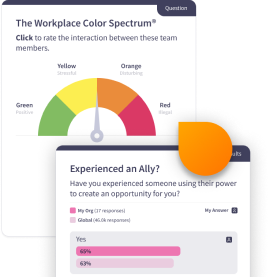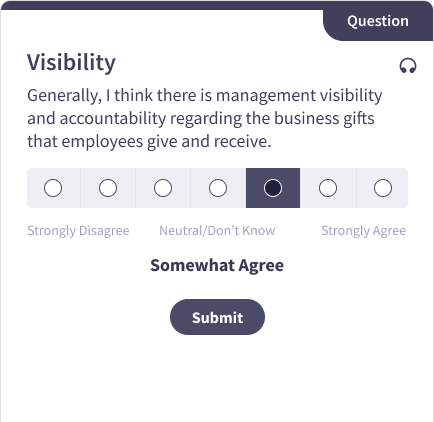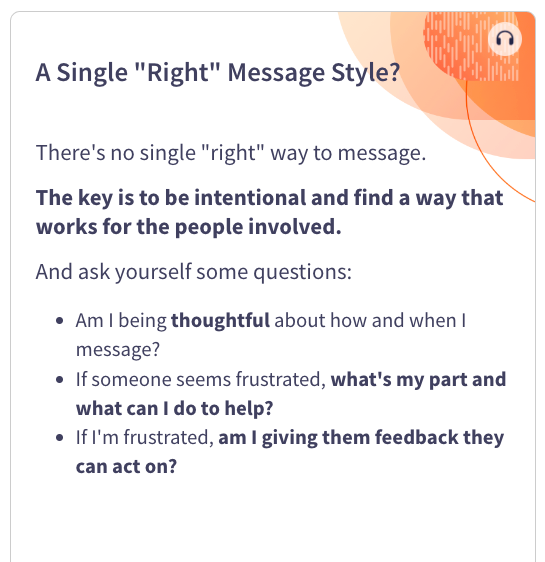
Creating Equal Opportunities for All
Between 30% to 40% of the population is thought to be neurodivergent, and managers need guidance on how best to support neurodiverse employees to be successful. We’re all different - background, culture, experience, and more. Our brains are also wired differently, depending on person to person. Understanding and celebrating those differences is essential to supporting neurodiverse individuals throughout the entire employee lifecycle.
Microlesson Description
This microlesson aims to educate learners and managers on focusing on a person’s strengths and individual skillset to build their professional growth. We also dive into the do’s and don’ts of supporting a neurodiverse workplace to ultimately foster an environment where everyone can thrive and have equal opportunities.Key Concepts
- A breakdown of neurodiverse terminology and definitions
- How to recognize different strengths and build on those strengths for success
- Valuing and understanding differences with empathy and respect
- Ways to provide reasonable accommodation and build trust and open feedback
- Empower managers and teams with skills to work with neurodiverse individual
Microlesson Features
- Employee sentiment pulsing questions that provide leaders with insights into their workforce's core cultural competencies
- Emtrain's Expert Answers tool, enabling employeees to submit anonymous questions about sensitive issues.
- Rich, contemporary video scences illustrating key concepts through realistic scenarios
- A data driven, skill-based approach to eLearning that establishes a shared language for employees.

Related Resources
Related Trainings
Frequently Asked Questions
Below are answers to common questions that employees and managers have about this topic. These FAQs provide a preview of what you’ll learn in this microlesson and why it matters.
Q
Why should organizations prioritize neurodiversity in the workplace?
Prioritizing neurodiversity supports legal compliance, inclusivity, and better utilization of diverse talent.
Q
How does neurodiversity strengthen innovation and problem-solving?
Neurodiverse employees bring unique perspectives and innovation that strengthen problem-solving.
Q
What risks arise if neurodiverse employees lack accommodations?
Lack of accommodations can cause disengagement, turnover, and compliance violations.
Q
How can managers adapt communication for neurodiverse team members?
Managers can adapt communication by offering clarity, flexibility, and check-ins to support employees.
Q
Why is a strengths-based approach better than focusing on deficits?
A strengths-based approach empowers neurodiverse employees and encourages valuable contributions.




